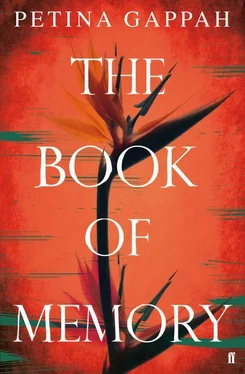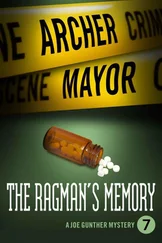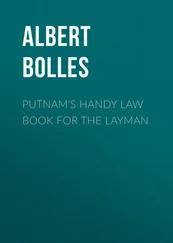Domenica began to talk about something else. I focused on the wine. I had never lived in a village or even been to one, but I could not imagine any villagers, between the harvesting and the tilling, between the water-fetching and the shifting cultivation, having time to stand and murmur forgiveness chants in circles in the middle of the night. I know I did not convince Domenica because I heard her tell that story again at another, bigger dinner party.
Since that night, this mysterious forgiveness ceremony has popped up many times in other places, always attributed to different tribes. It even appeared in your magazine, in an excerpt from the memoir of an American writer who always looks as though she is weighed down by both the thickness of her dreadlocks and the ponderousness of her prose.
I can see, I suppose, the attractiveness of it.
It speaks to the human need for validation, for acceptance, for belonging. It affirms the power of words. It says that words can be even more powerful than deeds; that dreadful acts can be wiped out by the simple sincerity of the right combination of words; it speaks to the power of contrition. If you say you are sorry enough, often enough, you can wipe out pain.
‘I stole maize that did not belong to me.’
‘We forgive you.’
‘My cow wandered into the wrong pasture.’
‘We forgive you.’
Even as I pour scorn on this forbearing tribe, I wonder what would it be like to have my own little village of all the people I have known, standing and saying they forgive me. Mostly it is Lloyd. He died before I could tell him how sorry I was, before I asked him if he forgave me. I long for him to speak to me, to say to me, ‘I forgive you, I forgive you, I forgive you.’
*
It was all because of a cancelled hockey game. Played in the winter months, when the sun burned less, hockey was one of the games that I could play and I made a competent right wing for the second team. On that afternoon, we were supposed to play Arundel School, but when we got there we found there had been a mix-up about the dates. The school allowed us to go home early. When I got home, I saw Lloyd’s car. I looked for him but he was not in any of the places that he usually was if he was home. The first thing that told me I was not alone was the murmur of voices.
I followed the sounds to Lloyd’s room. The door was slightly open. The laugh came again, Lloyd’s laugh rich with happiness. And then the murmur became Zenzo’s voice. Without thinking, now only reacting, I pushed the door ajar. Zenzo was sitting up, smoking, laughing down at Lloyd, who lay looking up at him from his pillow. They did not see me at once. Lloyd looked up and Zenzo laughed. On Lloyd’s face I saw something that might have appeared in my own face. And in Zenzo’s face, I saw something that I recognised as reciprocity, acceptance.
Lloyd turned and saw me. This was the tableau: Lloyd’s face of horror, Zenzo’s disappearing smile, the bed, the smoke wafting up to the ceiling, the men.
My blood froze to form sharp pins of ice that stabbed me with their heat. I must have made a sound. Zenzo said something. With his left hand, Lloyd grabbed a shirt from the floor and ran towards me, his right arm outstretched.
‘Don’t touch me,’ I said. ‘Don’t come near me.’
He stopped, as though recoiling from my hatred.
I turned to leave the room before I could cry.
In the many years that followed that day, after I had moved away and could look back with a calmer mind, I finally began to think about Lloyd’s life, about Tracey Collins, the woman in the photograph with the Farrah Fawcett hair and thick glasses, the woman who served as a protection to blind the world to what he was. I thought about what it meant to live in a country where you could never share such an essential part of yourself.
Many things made sense all at once: Alan Milhouse, the women he refused to be involved with, the strange voices that I heard at night. I did not think all of this at the time. I hated Lloyd. He repulsed me. I felt contaminated by him. I could not make the imaginative leap that would have made me see how trapped he was, that could have made me see the lie he was constantly forced to live.
I judged him with all the prudish and priggish self-righteousness of a Catholic schoolgirl with narrow, dogma-driven certainties.
In the years since the shock of that moment, I have come to understand Lloyd. Even as I write this, I see how presumptuous it is for me to say that. If I had been mature enough I could have seen how lonely he was, how terrifying it was to live in a country that did not accept you. Not even Lloyd’s whiteness could have saved him from the stigma of homosexuality because it is a stigma that cuts across race and tribe and religion and class and sex and political beliefs and all the artificial divisions this country has erected to keep people apart.
If I had been mature enough or had sufficient imagination, or generosity of spirit, I might have seen that Lloyd was as different to those around him as I was, that the fact of our difference bound us. But I felt only repugnance.
Would I have seen things differently if the object of his affection were not also the object of mine? Because I also hated him with all the passion of scorned love. But if I am honest I will admit my prejudice. I was as much a victim of my society as anyone else.
But the sin, for such I considered it, was nothing compared to this ghastly situation in which he was now my rival for Zenzo.
I saw him as someone who had taken away everyone that I had loved. I forgot the privations of my earlier life; I disregarded everything he had ever given me. I saw only the wrong that he had done me. He had taken the one person who made me happy.
In the hot fever of my pain, I saw him as existing only to block my happiness. I remembered every disagreement, every small thing he had ever denied me. My family — he had bought me from my family and now he had taken Zenzo. It was grotesque to be love rivals with someone who stood in place of my father. I did not stop to consider that Zenzo might have had his own agency. It was all Lloyd. Alone in my room, I slapped my face hard enough to leave angry red welts.
The next day, he tried to talk to me. I hurled at him my disgust and abhorrence. ‘Is this why you bought me? To make me see what you do? Is this why you brought me here?’
His face went white as he said, ‘What on earth do you mean, I bought you?’
‘You know very well what I mean,’ I flung at him. ‘I saw it all, at Barbours, remember? I was there. I may have been a child but I know what I saw.’
He walked away without talking and I was left to enjoy the savage satisfaction of my victory.
The next day I saw that he had put a letter for me under my door. It would be full of justification, I thought, and burned it in the fireplace without reading it. For the rest of the week, I stayed away from him. I took myself to school, and shut myself in my room as soon as I heard him come into the house.
Without knowing it, Zenzo gave me the idea for my revenge. The morning after I found him with Lloyd, he came to the house. I was sitting at the kitchen table, trying to eat toast and marmalade as I read.
I looked up from my toast to find him staring at me. I stood up quickly and went to the door. ‘You can’t tell anyone what you saw,’ he said. ‘You can’t.’
I tried to push past him but he held my hands. ‘Please,’ he said, intending a caress. ‘I get that you hate me right now.’
He put his hand on my waist, as though to draw me to him. I was filled with anger and outrage. I fought myself free.
‘If anyone finds out, if for any reason the police get involved, I mean, do you really want me to be in trouble?’
Читать дальше












